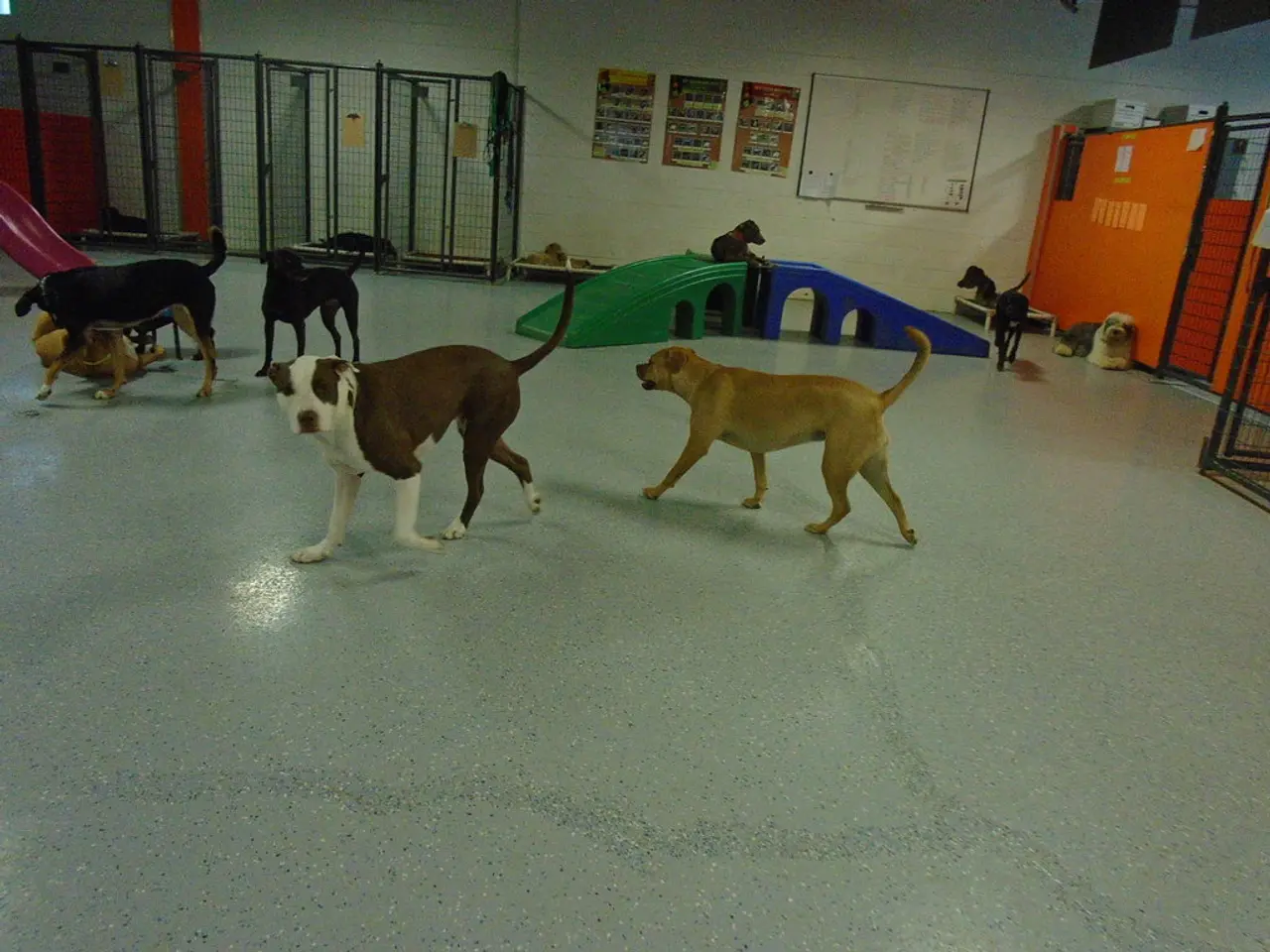If you're struggling with an overly excitable pooch, a canine trainer shares an unexpected remedy that could potentially quieten them down (and it's a real game-changer).
In the world of canine companionship, playtime is often seen as a simple and joyful activity. However, for reactive dogs, play can be a powerful tool in managing their reactivity, an aspect often overlooked.
Experts, such as Carolyn Martell, founder of Good Dog Training, emphasize the benefits of play for reactive dogs. Play serves as a dual advantage, boosting their confidence and acting as a form of desensitization in disguise. By exposing them to triggers like sights and sounds in a safe, positive context, play helps reactive dogs become more resilient and less reactive in challenging situations.
Play is dynamic, movement-oriented, and interactive, making it more engaging for dogs and less likely for them to fixate on triggers. By directing their attention towards the owner and the toy, play makes it easier for reactive dogs to focus.
Toys that encourage patterned movement, such as interactive toys or games based on Leslie McDevitt's Pattern Games, are highly recommended. These toys help keep reactive dogs engaged, calm their heart rates, and build positive associations without pressure.
High-value food toys or treats are another effective approach. These can strategically redirect a dog’s attention and encourage relaxation by involving sniffing and controlled movement.
Play can also serve as a useful tool in reactivity training, as it can reward desired behaviors. For instance, a play session with a favorite toy can be a reward for a dog that has successfully navigated a challenging situation without reacting.
In addition, controlled play environments, such as dog play parks, can gently expose reactive dogs to outdoor noises and other stimuli while practicing recall and building confidence.
The Petdroid Interactive Dog Toy, with its two modes to keep dogs entertained, and the Hyper Pet Doggie Tail, a motion-activated plush, squeaky toy that wiggles, vibrates, and barks, are examples of toys that can help stimulate play and reduce anxiety and boredom in reactive dogs.
Play offers reactive dogs emotional benefits like confidence and relaxation, and experts favor toys and games that encourage engagement, calmness, and positive associations rather than pressure or frustration.
For pet owners navigating the challenges of owning a reactive dog, an article titled "Owning a reactive dog is hard. Here's how I navigated the social challenges with my pooch" might be particularly useful. Carolyn Martell shared her insights on the benefits of play for reactive dogs in a recent Instagram post, offering valuable advice for those looking to incorporate play into their dog's training and daily routine.
- Playtime, a significant activity in the world of canine companionship, serves as a powerful tool in managing the reactivity of reactive dogs, an aspect often overlooked.
- Experts like Carolyn Martell, founder of Good Dog Training, advocate for play as it offers dual benefits for reactive dogs, boosting their confidence and serving as a form of desensitization.
- By exposing reactive dogs to triggers like sights and sounds in a safe, positive context, play helps them become more resilient and less reactive in challenging situations.
- Toys that encourage patterned movement, such as interactive toys or games based on Leslie McDevitt's Pattern Games, are highly recommended for reactive dogs, helping them stay engaged and build positive associations.
- High-value food toys or treats can strategically redirect a dog's attention and encourage relaxation by involving sniffing and controlled movement, making them another effective approach for reactive dogs.
- Play can also reward desired behaviors in reactivity training, making it a useful tool for pet owners navigating the challenges of owning a reactive dog.




